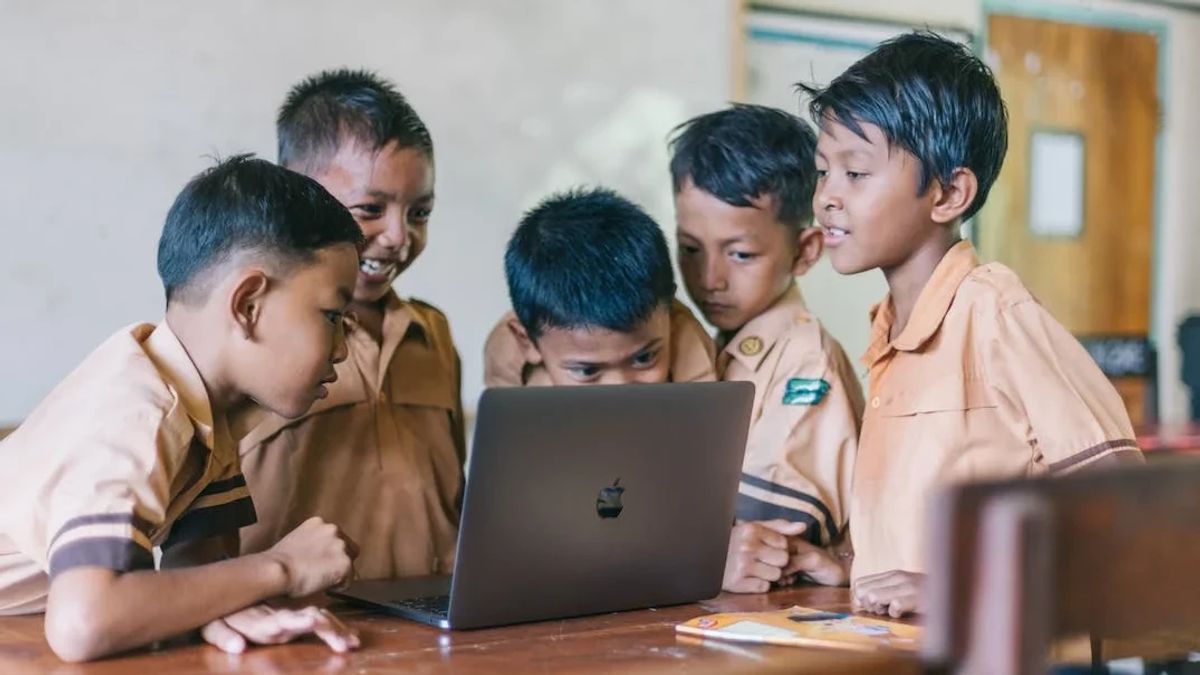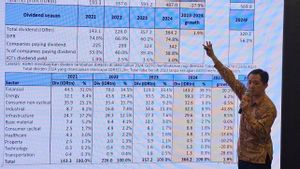JAKARTA - A study from Harvard University revealed that the world's social media giant generated ad revenue of 165 trillion rupiah in 2022, all of which came from users under the age of 17 in the United States.
Harvard researchers found that about 20 percent (32 trillion rupiah) of Facebook, Instagram, Snapchat, X, and YouTube revenues came from children aged 12 years and under. While the remaining 132 trillion rupiahs were obtained from users aged 13 to 17 years.
The study, published on Wednesday, December 27, is touted as the first estimate of how much revenue this company has earned by attracting young internet users. Previous research has shown the link between social media consumption by young people and mental health conditions such as depression, anxiety, and eating disorders.
Former Facebook employees claim that these sites are designed to be addictive to children. With billions of rupiah on the brink, social media companies have strong reasons to keep children dependent, the researchers concluded behind this study.
Since these large and influential companies are not required to make their data publicly available, study writers must compile their forecasts from other sources of information. Public survey results and market research provide data on the social media habits of young users in 2022, including how long they spend on each site in a day.
Researchers use these figures to estimate how all children in the US use social media platforms. Market research helps study authors estimate how much money each social media company made from ads that year.
In addition to this figure, researchers estimate that 30 to 40 percent of Snapchat, TikTok, and YouTube's ad revenue comes from children aged 17 and under.
The following is an estimated ad revenue from all children in the US in 2022 for each social media company:
Instagram leads the list with an ad revenue of nearly IDR 69.2 trillion, more than double TikTok or YouTube (around IDR 32.6 trillion each).
Advertising revenues obtained from the social media habits of children aged 0-12 years in 2022 are:
Children aged 12 years and under are responsible for YouTube's advertising revenue which nearly reaches IDR 14.8 trillion per year, the research found.
Meanwhile, advertising revenue from teens aged 13 to 17 in the same year was:
Instagram dominated with $4 billion in ad revenue among teens, followed by TikTok with $2 billion. The study was published in the journal PLoS One.
"With a very large amount of money, it's hard to believe that technology companies will make their products less addictive to children," the study's authors suggested. Giant tech companies have vehemently opposed government regulation, and the results of this study "underlined financial incentives for platforms to oppose the government's efforts to protect the younger generation," the authors of the study wrote.
Although technology executives insist that the company can self-organize and 'do the right thing for its users,' monumental advantages from young users show that there is no reason for them to change course. When government officials try to regulate the tech industry, experts disagree on what the regulations look like.
SEE ALSO:
For example, the Kids Online Safety Act (KOSA), a bill introduced to Congress in 2022 and proposed again in 2023, is reportedly aimed at preventing social media companies from collecting data on children under 16 years of age.
The data collected about children forming targeted ads that users see on social media, allows companies to provide content that is more interesting to them. KOSA will also sue social media companies to 'act for the good of children' by limiting their exposure to harmful content.
However, even groups that tend to be critical of big tech companies, such as the Electronic Frontier Foundation (EFF), oppose KOSA. The group claims that the wide scope of the bill could open the door to increased sensors and reduced online freedom.
"Without clear guidance on the type of design or content that could cause the damage, they will most likely censor any discussions that could hold them accountable," the EFF statement said.
"This will provide censorship tools to state attorney generals and will seriously jeopardize the rights and security of online youths," they said.
Whatever the details, it's clear that social media companies are reaping huge profits from their young users.
The English, Chinese, Japanese, Arabic, and French versions are automatically generated by the AI. So there may still be inaccuracies in translating, please always see Indonesian as our main language. (system supported by DigitalSiber.id)


















